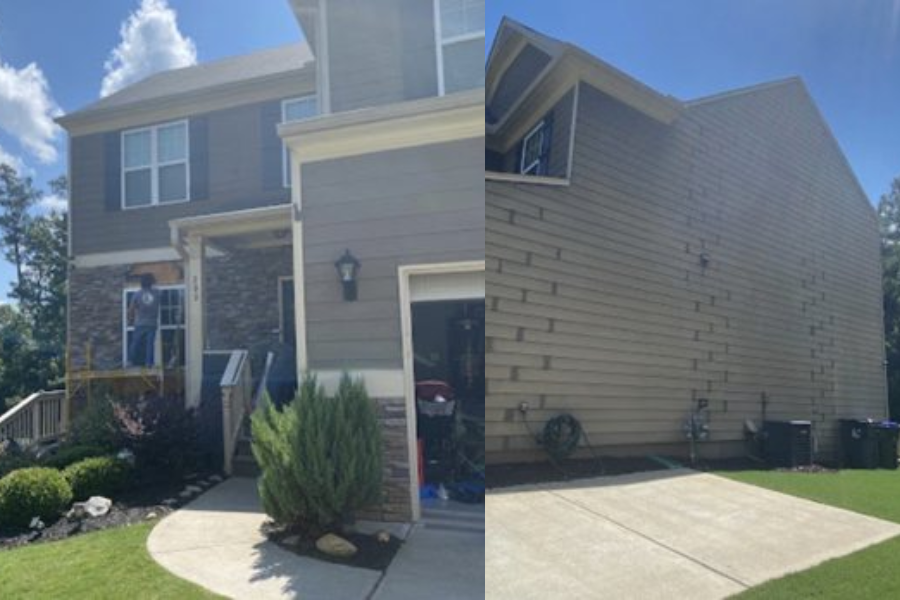Building Your Dream Home with Piedmont Residential And More
Constructing a home is one of the most important milestones in life. It transcends mere bricks and mortar; it’s about crafting a space that embodies your dreams, values, and lifestyle. At Piedmont Residential, we recognize the significance of this journey, which is why we’ve established clear guidelines to assist you at every stage of the building process. With a steadfast commitment to quality and excellence, we ensure that your new home is not only beautiful but also durable and compliant with all necessary standards.
In this blog post, we’ll discuss the key business principles that make Piedmont Residential a valuable partner for anyone contemplating a new home build. From understanding building regulations to integrating energy-efficient elements, these guidelines are designed with both homeowners and builders in mind. Let’s explore how adhering to these principles can lead to a successful and fulfilling construction experience.
The Importance of Quality in Home Building
Quality practices in home construction are essential for creating safe and lasting living spaces. They ensure that homes can endure over time, providing comfort and security for their residents.
By investing in top-notch materials and skilled craftsmanship, homeowners can reduce the likelihood of future repairs. This means fewer issues down the line, such as leaks or structural problems.
Additionally, high-quality construction enhances energy efficiency, resulting in lower environmental impact and significant savings on utility bills.
Attention to detail during the building process reflects a dedication to excellence, improving aesthetic appeal and increasing property value, which is crucial in a competitive real estate market.
Focusing on quality home building practices establishes a strong foundation for successful projects, satisfying clients while building community trust and a solid reputation within the industry.
Understanding Building Codes and Regulations
Building codes and regulations are the backbone of quality construction. They ensure safety, functionality, and sustainability in every project. Understanding these standards is vital for both builders and homeowners.
Local authorities create these codes to address the unique needs of each community. Regulations can vary significantly based on factors such as climate, soil conditions, and historical preservation guidelines.
Before breaking ground, it’s essential to thoroughly review relevant regulations, including zoning laws that dictate land use and structural codes that govern elements like electrical systems and plumbing.
Failing to comply with these regulations can lead to costly delays and fines. Thus, collaborating with experienced professionals who are familiar with local building codes can greatly streamline the construction process.
Ultimately, the goal is to create a safe living environment that meets all legal requirements while also reflecting personal style.
Steps for a Successful Home Building Journey
The home building journey begins with a clear vision. Establish your goals and expectations early to guide your decisions throughout the process.
Next, choose the right location. Research neighborhoods that align with your lifestyle and budget, considering proximity to schools, parks, and amenities.
Once you have a site in mind, it’s time to hire professionals. Engage an architect or designer who understands your vision and can translate it into actionable plans.
Acquiring the necessary permits is crucial. Familiarize yourself with local regulations and ensure all required permits are secured before construction begins.
Throughout the construction phase, maintain open lines of communication with your contractors. Regular check-ins allow you to address any issues promptly, helping to keep timelines and quality standards on track.
Keep a close eye on your finances. Budget for unexpected expenses to prevent them from derailing your project or compromising quality during this important journey.
Integrating Energy-Efficient Features
Incorporating energy-efficient features into your home is not only beneficial for the environment but also helps reduce utility costs.
Start with effective insulation. Quality insulation keeps your home warm in the winter and cool in the summer, minimizing energy use.
Consider installing Energy Star-rated windows, which reduce heat loss and cooling costs, enhancing comfort year-round.
Upgrading to energy-efficient appliances can also make a significant impact. Look for appliances that consume less electricity without sacrificing performance.
Lighting is another area to consider. Switching to LED bulbs, which last longer and use up to 80% less energy than traditional incandescent bulbs, is a smart move.
Additionally, explore renewable energy options such as solar panels. They harness sunlight for clean energy, decreasing reliance on fossil fuels.
Upholding Quality Standards Throughout Construction
Maintaining quality standards during every stage of the construction process is crucial for achieving a successful outcome. Each phase requires careful attention to detail to ensure compliance with established guidelines.
Begin with thorough planning. A well-organized blueprint sets the stage for success. Work with skilled professionals who understand the complexities of home building.
Consistent communication among team members fosters collaboration. Regular meetings help identify potential issues early, allowing for quick resolutions.
Integrate quality control checks at each phase—foundation, framing, plumbing—to ensure adherence to specifications and industry standards. This proactive approach minimizes costly mistakes.
Encourage feedback from subcontractors and employees. Their insights can lead to improved processes that benefit future projects while maintaining high-quality benchmarks.
Conclusion
Piedmont Residential’s business rules are essential in ensuring that home building practices uphold the highest standards. By prioritizing quality, builders can create homes that are not only visually appealing but also structurally sound and safe for occupants. Understanding local building codes and regulations is critical, as these guidelines protect both the builder’s interests and the homeowner’s investment.
The process of building a home involves numerous steps, each crucial for achieving a successful outcome. From selecting the right site to final inspections, following best practices ensures efficiency and satisfaction throughout the journey. Incorporating energy-efficient features reduces utility costs while enhancing comfort and contributing to environmental sustainability.
Maintaining quality standards at every phase of construction is non-negotiable. This commitment reflects professionalism and dedication to delivering value, resulting in homeowners who take pride in their spaces.
Establishing strong business rules at Piedmont Residential sets a standard for excellence in home construction. Our focus on quality helps build trust among clients while promoting sustainable development practices within communities.



